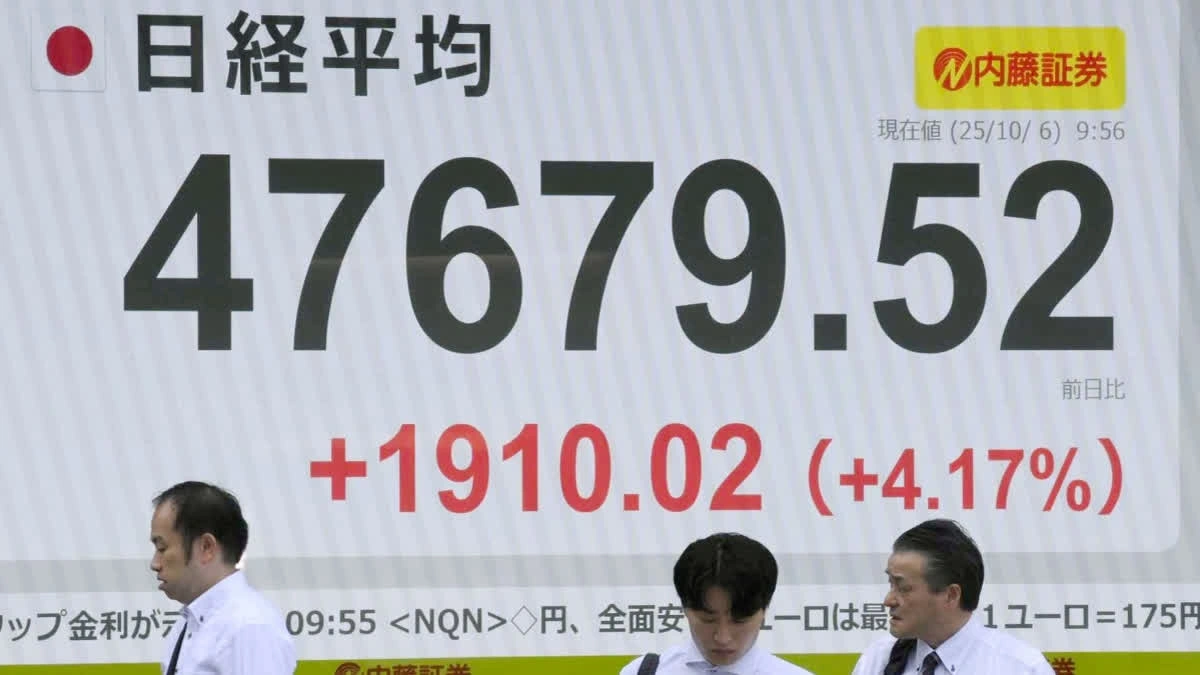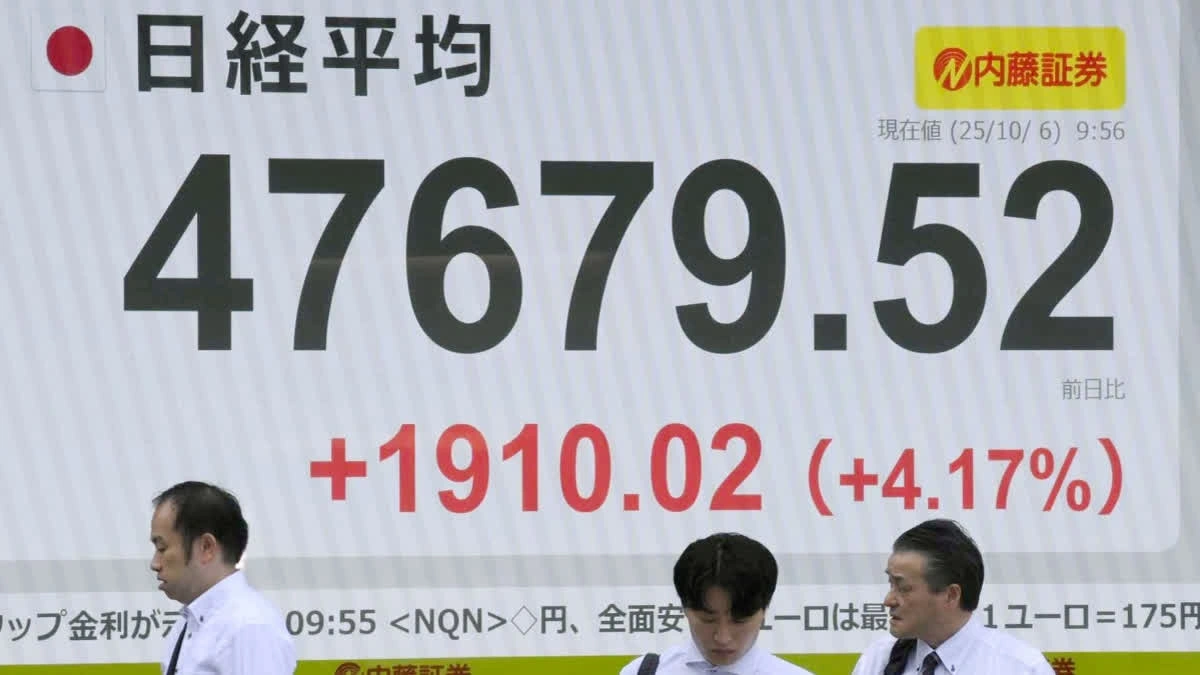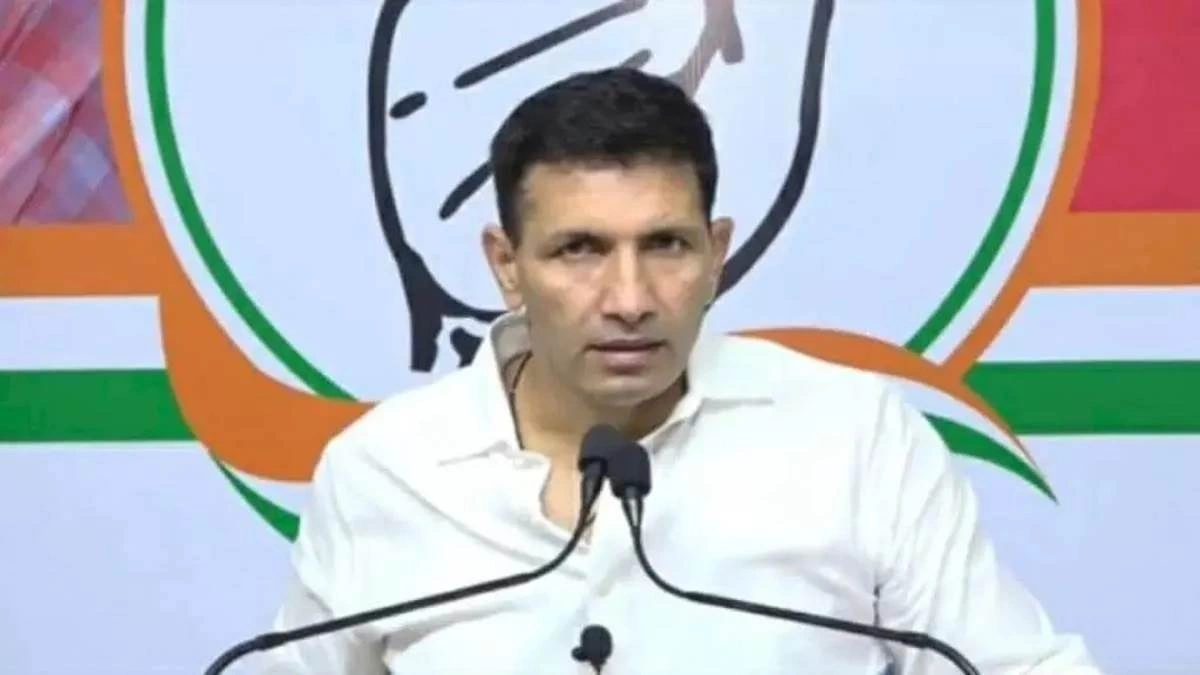Decoding the Nikkei Index | Why It Matters to You in India
The Nikkei Index . It sounds like something you’d hear on a serious finance channel, right? And, let’s be honest, it often stays there – a vague number flashing across the screen. But here’s the thing: the Nikkei, Japan’s leading stock market index, has ripples that extend far beyond Tokyo’s trading floors. It affects investment strategies, global market sentiment, and even the price of goods you buy here in India. Stick with me; I’ll explain why.
Why Should Indians Care About the Nikkei 225?

So, you might be thinking, “Japan’s stock market? What’s that got to do with me sipping my chai in Delhi?” Good question. The connection is more profound than you might imagine. The Japanese economy is a global powerhouse, and the Nikkei is its barometer. When the Nikkei surges, it signals strength. When it dips, it raises alarms. And global markets, including India’s, are interconnected.
Consider this: many Indian companies are deeply integrated into global supply chains that rely on Japanese technology and manufacturing. A strong Nikkei often translates to increased Japanese investment in India, more collaborations, and potentially even lower prices on certain imported goods. A weak Nikkei? Well, that could signal caution and a slowdown in those areas. A common mistake I see people make is dismissing it as irrelevant just because it isn’t a domestic index.
But there’s more. India and Japan share a strategic partnership, and economic health in one country often boosts confidence in the other. Investors watch the Nikkei as an indicator of overall Asian economic health, which influences their decisions about investing in India. Check this out.
Understanding the Nikkei | Not Just a Number
The Nikkei 225 is a price-weighted index comprised of 225 of Japan’s largest and most liquid companies. Unlike some other indices that use market capitalization, the Nikkei gives a higher weighting to companies with higher share prices. What fascinates me is how it has evolved over time, reflecting Japan’s economic journey.
This price-weighting method has its critics, of course. Some argue that it can be skewed by a few high-priced stocks. But it’s also easy to understand, which makes it a popular benchmark. When you hear about the Nikkei rising or falling, it’s essentially a measure of how these 225 companies are performing collectively.
Keep an eye on the Bank of Japan (BOJ) . Their monetary policies (interest rates, bond-buying) greatly impact the Nikkei. If the BOJ adopts an aggressive easing policy (lowering interest rates and buying assets), it can boost corporate earnings and send the Nikkei soaring. Conversely, tightening monetary policy could have the opposite effect. And you can be sure the Japanese Yen plays a big role here too.
How Global Events Impact the Nikkei Index
The Nikkei doesn’t exist in a vacuum. Global events – from geopolitical tensions to economic policy changes in the US and Europe – can significantly influence its performance. For example, if there’s a trade war between the US and China, it could negatively impact Japanese exports and, in turn, the Nikkei. What’s interesting is that the index’s reaction to these events provides insights into global market sentiment.
Think of it like this: the Nikkei is a sensitive instrument that picks up on global economic vibrations. A rise in crude oil prices , for instance, can hurt Japanese businesses that rely on imported energy, potentially dragging down the index. Similarly, a strengthening US dollar can make Japanese exports more expensive, affecting company profits and the Nikkei’s overall performance. As per the guidelines mentioned in the information bulletin, understanding global interconnectedness is the key. Consider this article.
Investing in the Nikkei from India | Options and Considerations
So, you’re thinking, “Okay, I get it. The Nikkei matters. But how can I, sitting here in Mumbai, actually invest in it?” Well, here’s the thing: while you can’t directly buy the Nikkei index itself, there are ways to gain exposure to Japanese stocks from India. Several international mutual funds invest in Japanese equities, many of which track or benchmark themselves against the Nikkei. These funds offer a diversified way to participate in the potential upside of the Japanese market.
Another option is to invest in Exchange Traded Funds (ETFs) that focus on Japan. These ETFs are listed on international stock exchanges and offer exposure to a basket of Japanese stocks. You can invest in these ETFs through international brokerage accounts. What’s more, many Indian brokers now offer platforms for investing in global markets, making it easier than ever to diversify your portfolio internationally.
But here’s the catch: investing in international markets involves currency risk. If the Indian rupee strengthens against the Japanese economy , your returns in rupee terms could be lower, even if the Nikkei performs well. It’s crucial to consider this factor and potentially hedge your currency risk if you’re making a significant investment. Investing in Japanese stocks is never a bad idea.
Navigating Nikkei Volatility | Tips for the Indian Investor
Like any stock market index, the Nikkei experiences periods of volatility. Economic news, political events, and global crises can all trigger sharp swings in the index. As an Indian investor, it’s essential to approach the Nikkei with a long-term perspective and a well-thought-out investment strategy. Don’t let short-term fluctuations scare you out of the market.
Diversification is your best friend. Don’t put all your eggs in one basket. Spreading your investments across different asset classes and geographies can help mitigate risk. Also, consider using a stop-loss order to limit your potential losses if the Nikkei takes a nosedive. But even with these precautions, I can’t stress enough the importance of researching the underlying stocks.
Stay informed about the factors that drive the Nikkei. Follow economic news from Japan and around the world. Understand the policies of the Bank of Japan and how they might impact the market. By staying informed, you’ll be better equipped to make informed investment decisions.
FAQ | Nikkei Index and Indian Investors
What exactly is the Nikkei 225?
It’s Japan’s leading stock market index, tracking the performance of 225 of the country’s largest companies.
Why should I, as an Indian, even care?
The Nikkei reflects the health of the Japanese economy, which impacts global markets, including India, influencing trade, investment, and even the price of goods.
How can I invest in the Nikkei from India?
You can invest through international mutual funds and ETFs that focus on Japanese equities.
What are the risks involved?
Currency risk is a major factor. If the rupee strengthens against the yen, your returns could be lower. Currency fluctuations can be unpredictable.
Is now a good time to invest in the Nikkei?
That depends on your individual investment goals and risk tolerance. Do your research and consult with a financial advisor.
Where can I find reliable information about the Nikkei?
Reputable financial news websites and brokerage platforms provide real-time Nikkei data and analysis.
Ultimately, the Nikkei Index is more than just a number it’s a window into the complex and interconnected world of global finance. By understanding its dynamics and its implications for India, you can make more informed investment decisions and gain a deeper appreciation for the forces that shape our economic landscape. And that, my friend, is something worth sipping chai over.













